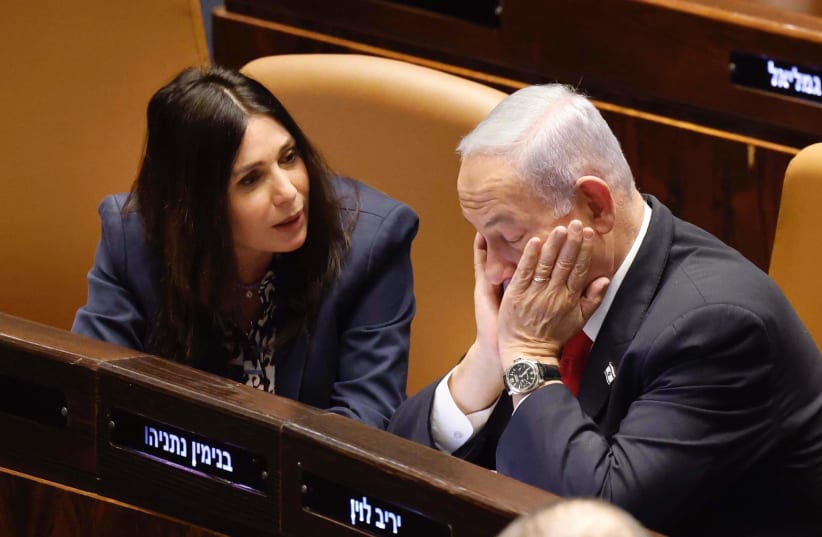
Last week, 13 Channel journalist Raviv Drucker, known for his scandalous investigations, released another episode of the documentary program Ha-Makor (המקור), in which he exposed the corrupt behavior of Transportation Minister and No. 9 on the Likud party list Miri Regev.
Drucker used the testimony of Yonatan Yosef, the former chief of staff for Miri Regev’s professional work, as evidence. Yosef gave access to work chats, correspondence, audio messages, and documents to support the investigation.
What did the investigation reveal?
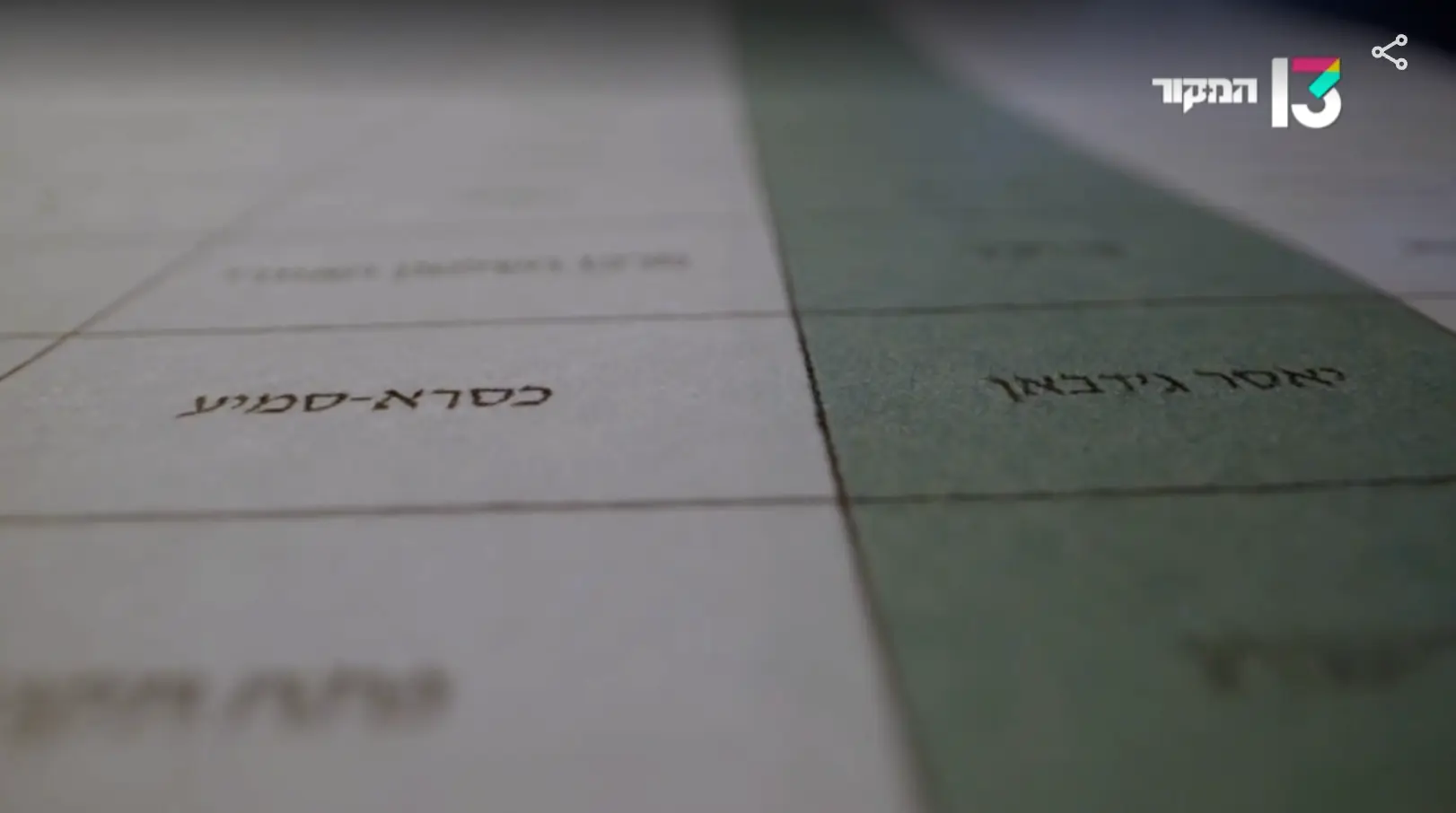
The main focus of the investigation was the operational system within the Ministry of Transport. According to the uncovered documents, the ministry had developed a “traffic light” system, a table categorizing all municipal heads based on their attitudes towards political parties.
The list highlights the heads of cities and local councils who belong to the Likud party and ranks them based on the number of votes they secured for Miri Regev in the party’s most recent primaries.
Thus, everyone is highlighted either green — the most valuable (also called diamonds), yellow — the less useful, and without any color — the unimportant, those who brought no votes or are not Likud members at all.
According to this system:
Greens received top-class service, including prioritized requests, projects funding, meetings, and regular communication.
Yellows received help on an ad hoc basis.
Whites have not received any responses to inquiries at all.
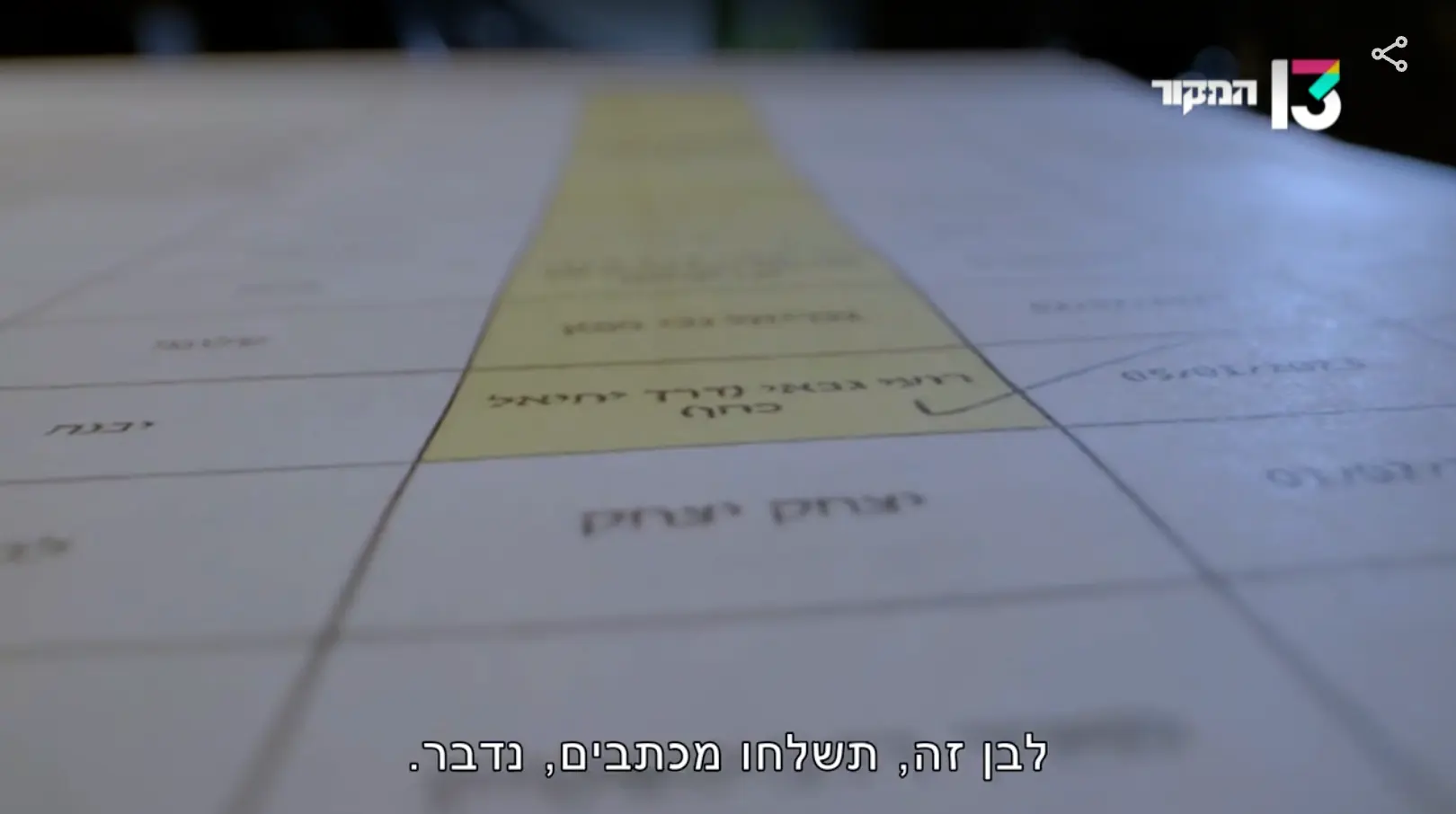
For instance, the head of the Emek ha-Yarden local council has not received a response to a single letter or request for a meeting, let alone the advancement of crucial transportation projects, such as on highly accident-prone stretches of road.
Meanwhile, the mayor of Nof HaGalil receives everything he requests, including projects that contradict the ministry’s professional opinion.
Let’s break it down once more. The Ministry of Transportation’s decisions, such as where to install traffic lights, build interchanges, lay bicycle lanes, and repair roads — critical matters that can affect lives — are influenced by whether municipal officials are members of the Likud party and how loyal they are to Minister Regev personally.
The same grading system was applied to regular Likud activists, for whom the Minister of Transportation readily fulfilled almost any favor request. For instance, expediting repairs at a car shop for an activist from Hadera who “just bought a new Jeep for 350,000,” and the shop is “giving him tricks.” Or push bureaucratic processes. Or to get someone’s children a job. Regev and her advisors forwarded all such requests to the “First Priority” group chat room and received a swift response.
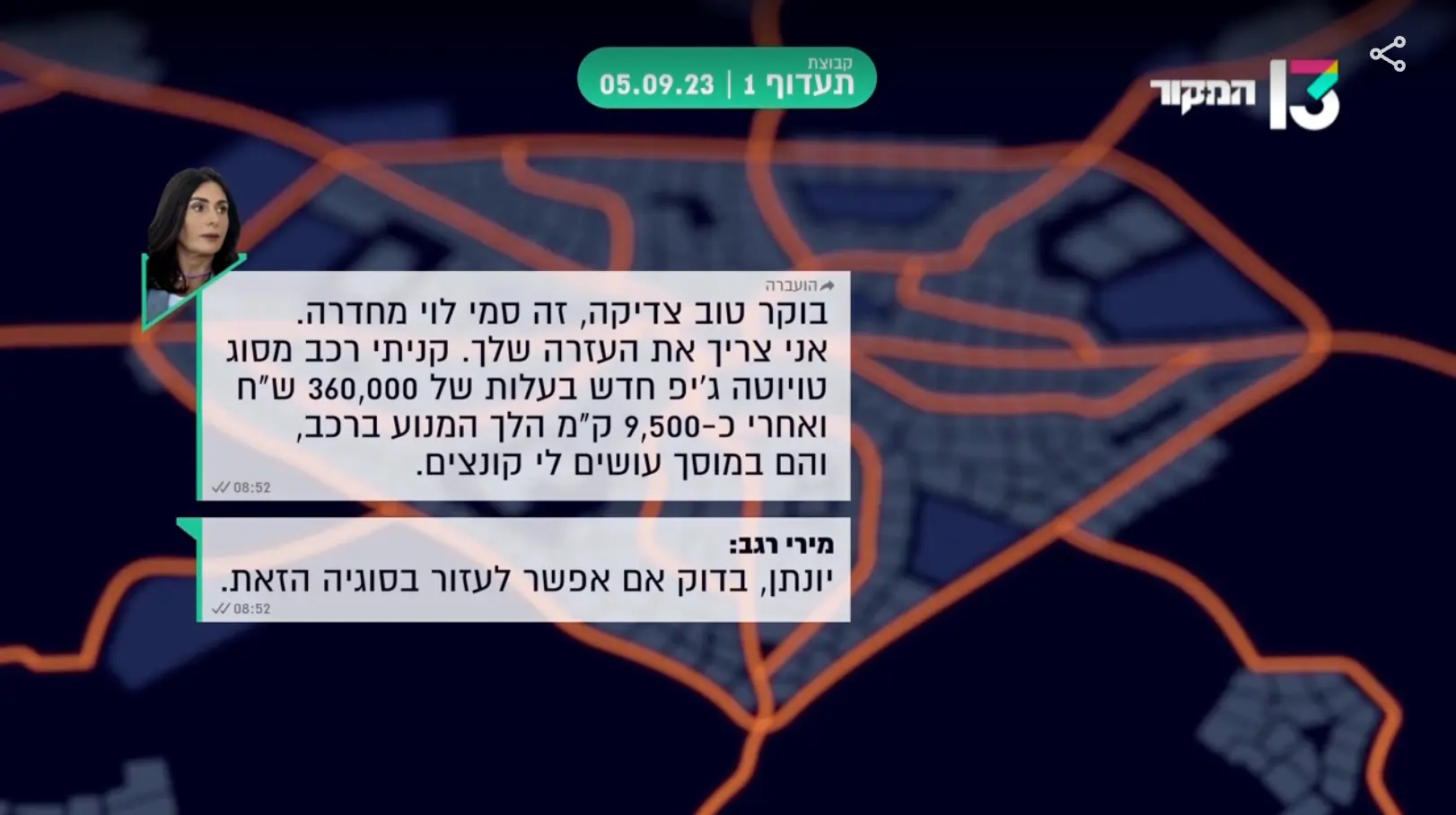
Among other things, it turned out that Regev and her team did not think particularly highly of several fellow party members and journalists. Defense Minister Yoav Galant was referred to in correspondence as a “wimp” and a “total zero,” Foreign Minister (until 01.24) Eli Cohen as a “son of a b…h” and a “s…head,” and so on.
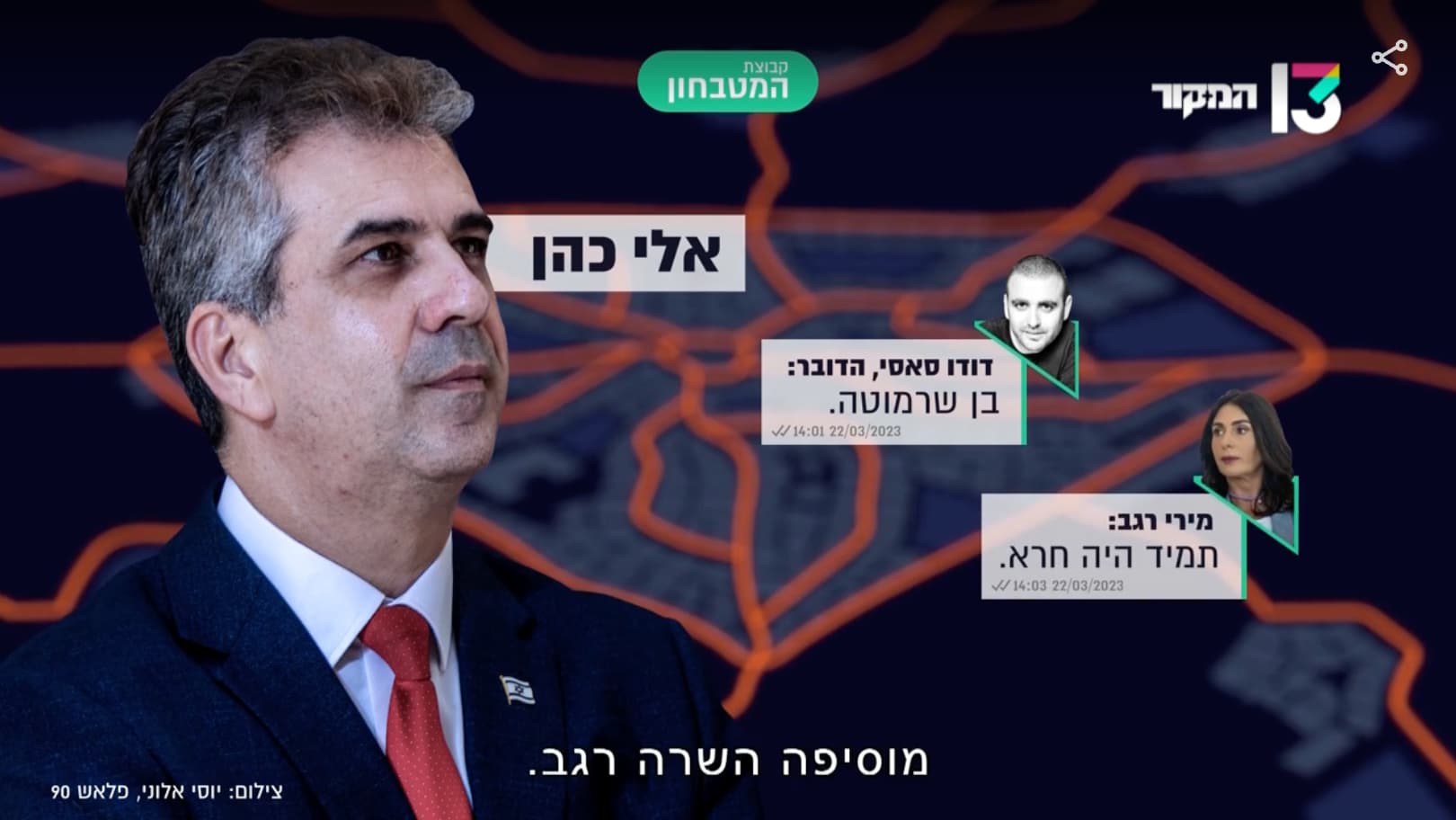
Miri Regev’s schedules revealed that professional affairs at the Ministry of Transportation received an average of 3.5 hours per week. The remainder of her time was filled with political meetings. This prioritization of political processes over professional duties is corroborated by Yonatan Yosef and various correspondence records.
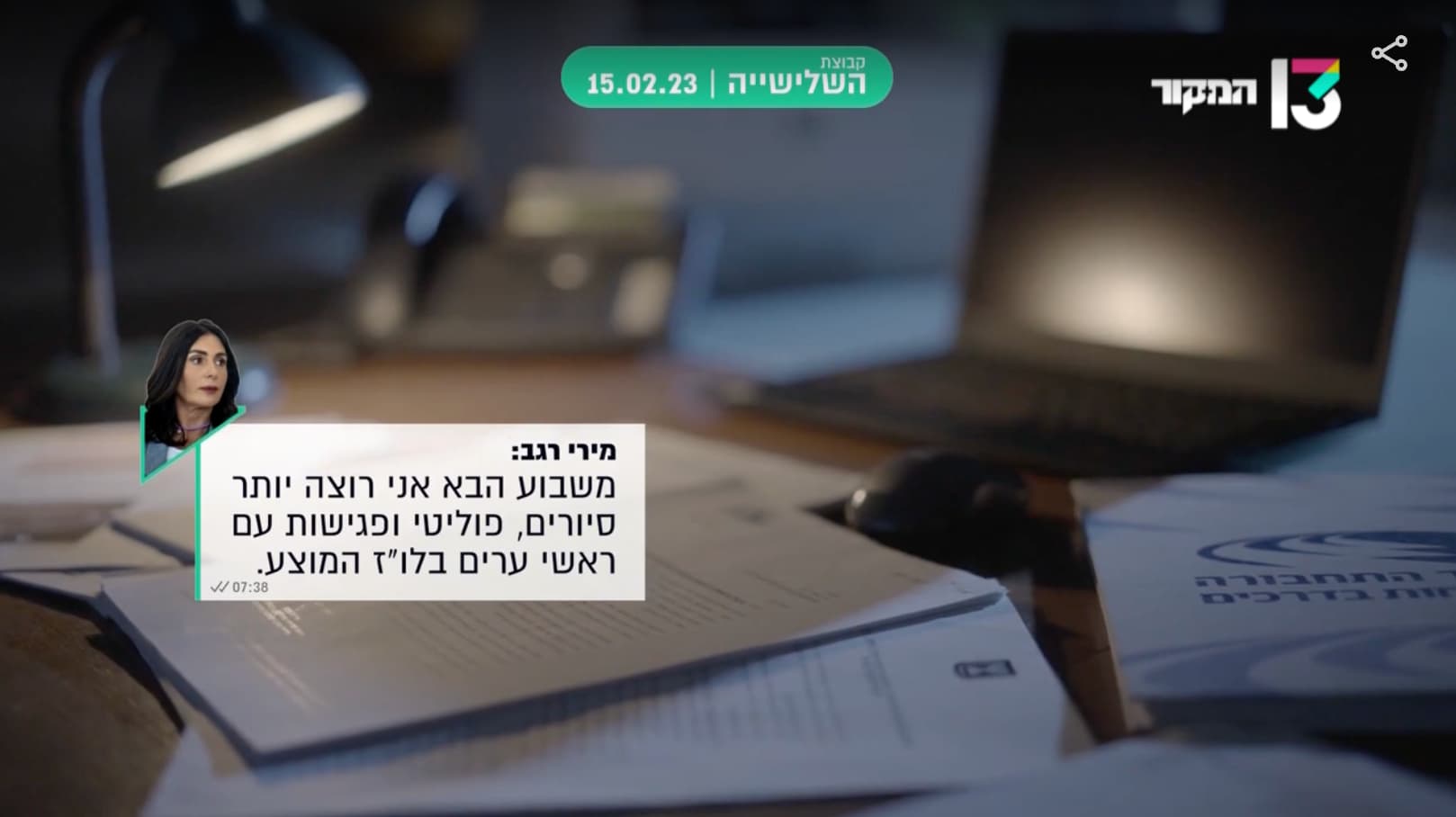
The documentary opens with a mysterious incident involving Miri Regev at an Army ceremony on September 6, 2023. Regev’s driver runs over the foot of an internal security officer (Shin Bet), leading to a confrontation. Regev intervenes to support her driver, but officers block her path.
All of this was captured on camera, and following the incident, Regev and her advisors launched an information offensive. They sent two videos to Channel 12 journalist Amit Segal — one from inside the car and another showing Regev allegedly being rudely pushed away — accompanied by a message denouncing such behavior as unacceptable.
One oversight by Regev’s advisors was that the car’s video included sound, revealing her instructing the driver to proceed despite people blocking the car’s path, to which the driver initially refused. But she insisted and pushed him to run over people. Upon realizing the error, Regev chose not to apologize but instead escalated her criticism of the security services, accusing them during a live TV appearance of almost staging a coup. Despite requests from the Shin Bet not to attack them, the Prime Minister supported Regev’s stance.
Editor’s commentary
Drucker began with this episode to highlight cynicism, deliberate politicization of every action, and a pervasive sense of impunity. Unfortunately, this is not news to Israeli society but rather a long-normalized phenomenon in politics.
Police have opened an investigation into Regev, and if the case goes to indictment, it will be the first high-profile criminal trial since cases were opened against the prime minister.
A revelation of such magnitude, grounded not on speculation, rumors, or anonymous sources but on the correspondence, documents, and testimony of a person also facing criminal prosecution for revealing it, is, at the very least, a total breach of trust.
In a healthy political environment, out of respect for the public, the minister would have resigned immediately upon the release of such a scandalous investigation, even prior to any legal proceedings.
But we should have no illusions – instead, what lies ahead is an aggressive and undignified campaign of denial and discrediting everything and everyone involved in this investigation.
Share
other materials